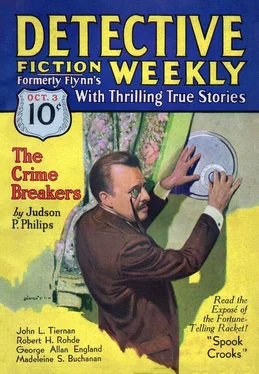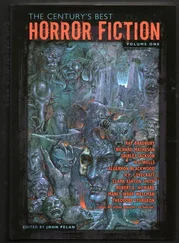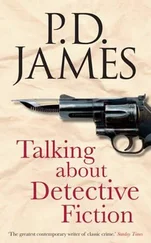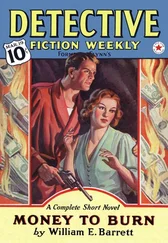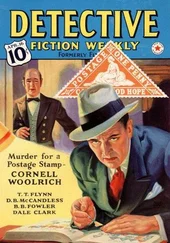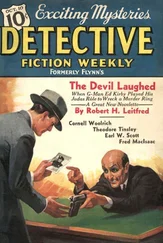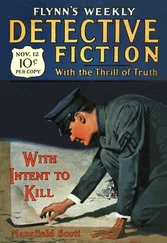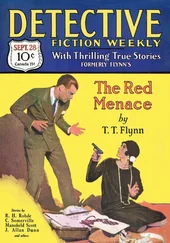Джордж Энгланд - Detective Fiction Weekly. Vol. 62, No. 2, October 3, 1931
Здесь есть возможность читать онлайн «Джордж Энгланд - Detective Fiction Weekly. Vol. 62, No. 2, October 3, 1931» весь текст электронной книги совершенно бесплатно (целиком полную версию без сокращений). В некоторых случаях можно слушать аудио, скачать через торрент в формате fb2 и присутствует краткое содержание. Город: New York, Год выпуска: 1931, Издательство: The Red Star News Company, Жанр: Детектив, на английском языке. Описание произведения, (предисловие) а так же отзывы посетителей доступны на портале библиотеки ЛибКат.
- Название:Detective Fiction Weekly. Vol. 62, No. 2, October 3, 1931
- Автор:
- Издательство:The Red Star News Company
- Жанр:
- Год:1931
- Город:New York
- ISBN:нет данных
- Рейтинг книги:3 / 5. Голосов: 1
-
Избранное:Добавить в избранное
- Отзывы:
-
Ваша оценка:
- 60
- 1
- 2
- 3
- 4
- 5
Detective Fiction Weekly. Vol. 62, No. 2, October 3, 1931: краткое содержание, описание и аннотация
Предлагаем к чтению аннотацию, описание, краткое содержание или предисловие (зависит от того, что написал сам автор книги «Detective Fiction Weekly. Vol. 62, No. 2, October 3, 1931»). Если вы не нашли необходимую информацию о книге — напишите в комментариях, мы постараемся отыскать её.
Detective Fiction Weekly. Vol. 62, No. 2, October 3, 1931 — читать онлайн бесплатно полную книгу (весь текст) целиком
Ниже представлен текст книги, разбитый по страницам. Система сохранения места последней прочитанной страницы, позволяет с удобством читать онлайн бесплатно книгу «Detective Fiction Weekly. Vol. 62, No. 2, October 3, 1931», без необходимости каждый раз заново искать на чём Вы остановились. Поставьте закладку, и сможете в любой момент перейти на страницу, на которой закончили чтение.
Интервал:
Закладка:
Less than a month later a squad of St. Louis police raided a downtown hotel on a tip that Burke was hiding there, but instead they found a gambling house owner and a well-stocked arsenal. A month after the Merchants’ Trust Company in Paterson, New Jersey, was held up and robbed of twenty thousand dollars, and half a dozen terrorized girl employees identified Burke’s pictures from police files. More leads... leads to nowhere.
But there was one agency that continued its relentless scouring of the country for the mad killer. The United States Department of Justice, remembering the two hundred thousand dollar mail truck holdup in Toledo, Ohio, in which a policeman had been slain and Burke’s acquittal of a thirty-five thousand dollar railway express robbery in St. Louis in 1925, was determined that this man should be brought to justice. Operatives had been working continuously and secretly on the manhunt for months, and finally their opportunity came.
VII
It was late in December of 1930 — a year after the Skelly killing in St. Joseph, Michigan — that Joseph. Hunsaker, a lean-faced young truck driver, living in Green City, Missouri, about one hundred and seventy-five miles northeast of St. Joseph, Missouri, became suspicious of a stockily-built, black-haired stranger who visited a farm home three and one-half miles west of Green City frequently.
The stranger flashed a big roll of bills, went around in flashy clothes, and drove an expensive automobile. When he drove into town he never got out of his car, and he avoided the people in Green City.
Hunsaker had seen a picture of Fred Burke, his cold, steely eyes glowering, and over it the caption: “Thousands on His Head!”
There had been something familiar about that face — and those eyes. In the picture Burke was clean-shaven, but there was an unmistakable resemblance between him and the stranger with the big, expensive automobile and roll of bills.
The young driver browsed around the town, learning what he could of the stranger.
Bit by bit he learned that the man was known as White, and that he was supposed to be a big business man in Kansas City. Last summer he had married Bonnie Porter, the tall, slender, blond daughter of Barney Porter, at whose home near Green City he visited.
Hunsaker was satisfied that he had located the widely hunted killer. He sat clown and wrote a letter to the Department of Justice agents in Chicago. Three days later he received an important locking letter warning him to proceed cautiously, keeping an eye on the man until he received further orders. Chief of Police E. M. Matthews of St. Joseph, Missouri, also received a letter. He was asked to investigate the information supplied by the truck driver.
Three times a squad of St. Joseph police went to the little four-room farm house midway between Green City and Milan, making the trip in the middle of the night. But each time they learned from their informant that the man they sought had left shortly before.
It was decided that Hunsaker was to watch the stranger’s movements and notify the police the next time the man appeared at the Porter farm. As a double check, officers were dispatched to Kansas City to watch the movements of Burke’s wife, who was employed as a nurse in a doctor’s office.
It was about three o’clock on the morning of Thursday, March 26, that the call came from Hunsaker. Burke was at the Porter home and his big car was parked outside, he reported. His wife was in Kansas City. Hunsaker understood that her husband was to leave to join her in the morning.
The raiding party, under the command of Captain John Lard, was ready in an instant. Two high-powered cars, ready for just that moment, roared away to the north in the night. With Captain Lard were three detectives, A. W. Thedings, Melvin Swepston and E. R. Kelly, and at their feet were three machine guns, shotguns, and a half dozen tear gas bombs.
At Milan the two cars halted their furious race long enough to pick up Sheriff L. C. Hoover, of Sullivan County. Deputy Ralph Clubine and Constable A. F. Pickett, of Green City.
Arriving at the Porter home about dawn, the officers found a highly polished, powerful automobile parked alongside the house in a driveway. Captain Lard ordered one of the police automobiles driven in front of it, and the other police car halted behind it to prevent any attempted escape.
Silently the seven men slipped noiselessly up on the porch. They had intended to rush into the house, but Porter, awakened by the sound of the cars, met them at the door. A revolver was pushed into the ribs of the astonished man and he fell back without a word.
The officers rushed down a narrow hall to the bedroom door, on the other side of which Captain Lard had been informed he would come upon the man known as the most ruthless slayer of modern times. The door was flung open, and there on the bed lay a sleeping man with black hair and a mustache. The high-powered car was parked just outside the open window and on a chair close beside the bed was a man’s coat with bulging pockets.
Two of the officers stepped between the chair and the bed, and two others stood with machine guns leveled at the man’s head. Detective Swepston shouted: “Stick ’em up!”
The man in the bed awoke with a start and sat bolt upright. He gasped in astonishment, and looked into the muzzles of the two machine guns. Then he made a grab for the coat on the chair. But the officer kicked it away. The coat fell to the floor, and a thirty-two caliber automatic revolver fell from the pocket.
The man now was trembling with fear.
“Take it easy,” warned Swepston. “ We’ve got you cold and it won’t pay to fight.”
“What are you going to do, take me for a ride?” the man stammered. And then he heaved a sigh of relief when the raiders convinced him they were officers of the law and not hired killers who had come to put him on the spot.
While he was dressing the captured man told the officers his name was Richard Franklin White, and that he was a salesman. In the pockets of his clothes was seven hundred and ninety-five dollars in hills of large denomination.
It was not until he was lodged in a special cell in the St. Joseph jail and under the guard of two officers that he revealed his identity. He refused to talk until he was confronted with Bertillon measurements and finger-prints, which checked in detail.
“Well, as long as you know, then I guess there isn’t much use in denying it,” the prisoner said sullenly. “I’m Burke. Who did you think you were capturing, Jesse James?”
Then he added with a smile:
“And I’m not a damned bit afraid to go back to Chicago.”
When Omaha, Nebraska, police telephoned a few minutes later in an attempt to learn from Burke whether he had had any part in a recent bank robbery at Lincoln, he replied curtly:
“Tell them to get a spiritualist and hold hands. Maybe they’ll find out.”
Burke made it clear that he wasn’t going to talk about any of his exploits or lend any help in clearing up the long series of crimes charged to his trigger finger.
“As far as I’m concerned, you might as well go take a walk, because I’m not going to talk,” he told Chief Matthews.
But despite his boast that he wasn’t a “damned bit afraid” to go back to Chicago and face the charge that he was the man who had helped mow down the seven Moran gangsters with a hail of machine gun fire, St. Valentine’s Day, Burke was pleased at the decision of Governor Henry Caulfield, of Missouri, to turn him over to Michigan authorities instead.
In Michigan, he realized, the maximum penalty for his crime would be life imprisonment, whereas Cook County, Illinois, had been loud in its promises to “burn” Burke in the electric chair if he were ever brought to trial.
Читать дальшеИнтервал:
Закладка:
Похожие книги на «Detective Fiction Weekly. Vol. 62, No. 2, October 3, 1931»
Представляем Вашему вниманию похожие книги на «Detective Fiction Weekly. Vol. 62, No. 2, October 3, 1931» списком для выбора. Мы отобрали схожую по названию и смыслу литературу в надежде предоставить читателям больше вариантов отыскать новые, интересные, ещё непрочитанные произведения.
Обсуждение, отзывы о книге «Detective Fiction Weekly. Vol. 62, No. 2, October 3, 1931» и просто собственные мнения читателей. Оставьте ваши комментарии, напишите, что Вы думаете о произведении, его смысле или главных героях. Укажите что конкретно понравилось, а что нет, и почему Вы так считаете.
